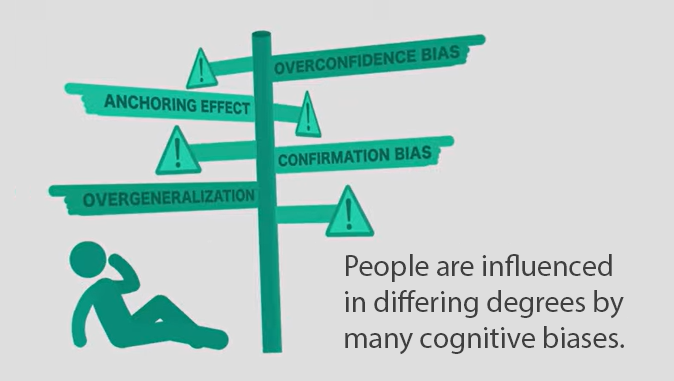At some point, we all have probably assumed others shared our opinions or beliefs only to realize later that they didn’t. Other times, we may have learned about a topic, felt confident in our knowledge, and then realized that there was much more about the topic we did not know. These are just two examples of unconscious errors in thinking our brains can make.
In this 2-minute video on “cognitive bias,” you will see how any of us — even the smartest people — can sometimes make errors in thinking. But by simply being aware of our biases and the ways our brains can fool us, we can help reduce the negative effects by trying to correct for cognitive bias.
After you watch the video, think about a time when you might have been affected by cognitive bias. What actions could you take next time to ensure your decision making is more ethical? For example, you might “take a moment” to challenge your initial thoughts before reaching a conclusion.

We encourage personal learning about these topics and want to help you make them a regular part of your conversations. Consider using this video or registering for a class in UTLearn to generate discussions in your workplace about ways these topics apply to us at UT. There are additional videos about Business Ethics available on LinkedIn Learning and online through Ethics Unwrapped.
As members of the UT community, we are all expected to uphold our university’s core values through integrity, honesty, trust, fairness, and respect toward peers and community. If you are facing a dilemma, consider talking about it with a friend, a supervisor or manager, the Ombuds Office, or consult with us at University Risk and Compliance Services.
If you think someone is behaving unethically or illegally, contact the Compliance and Ethics Hotline online or by phone at 877-507-7321 (English) and 800-216-1288 (Español). Anonymous reporting is available. Remember that UT Austin prohibits retaliation against anyone who raises a concern in good faith.